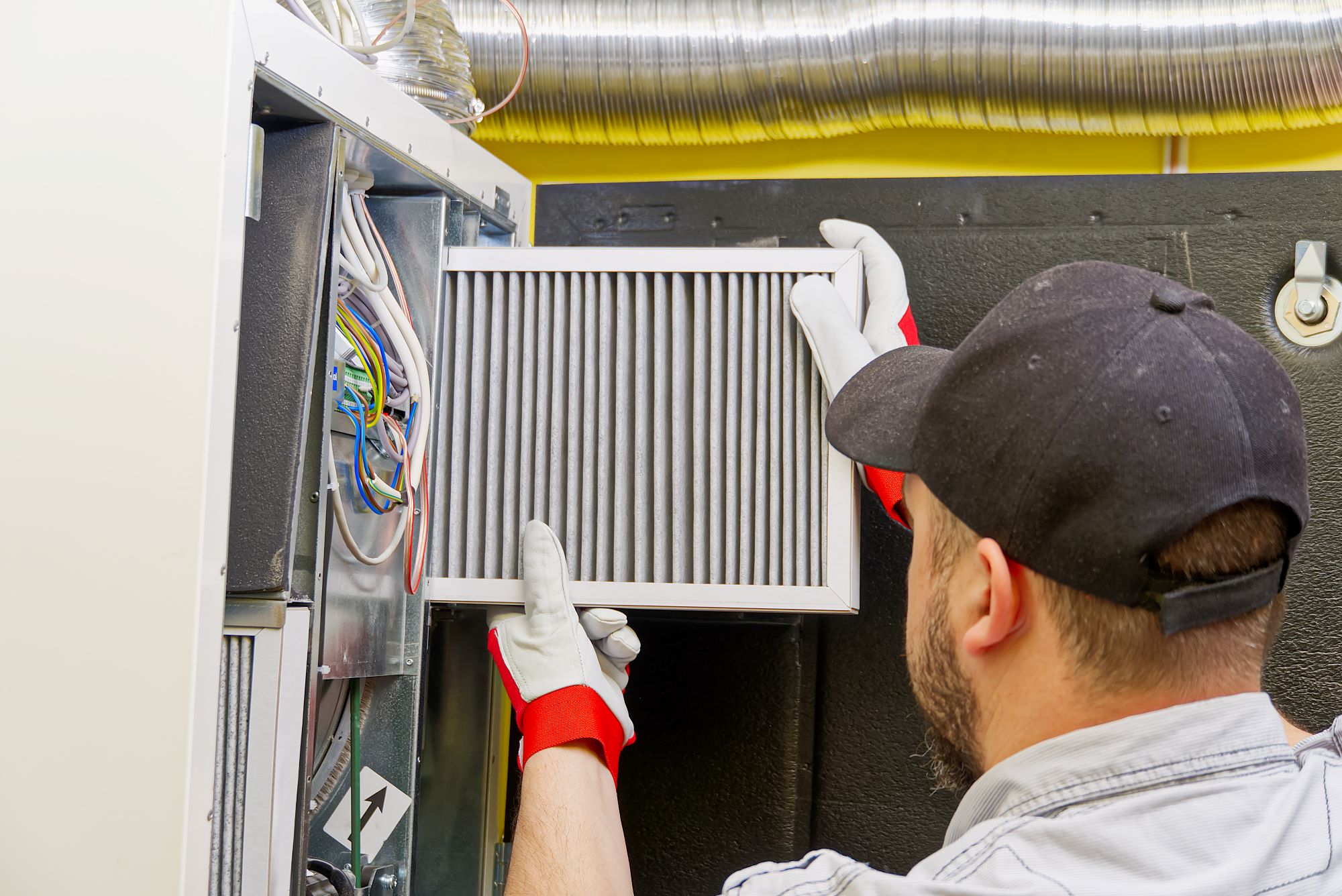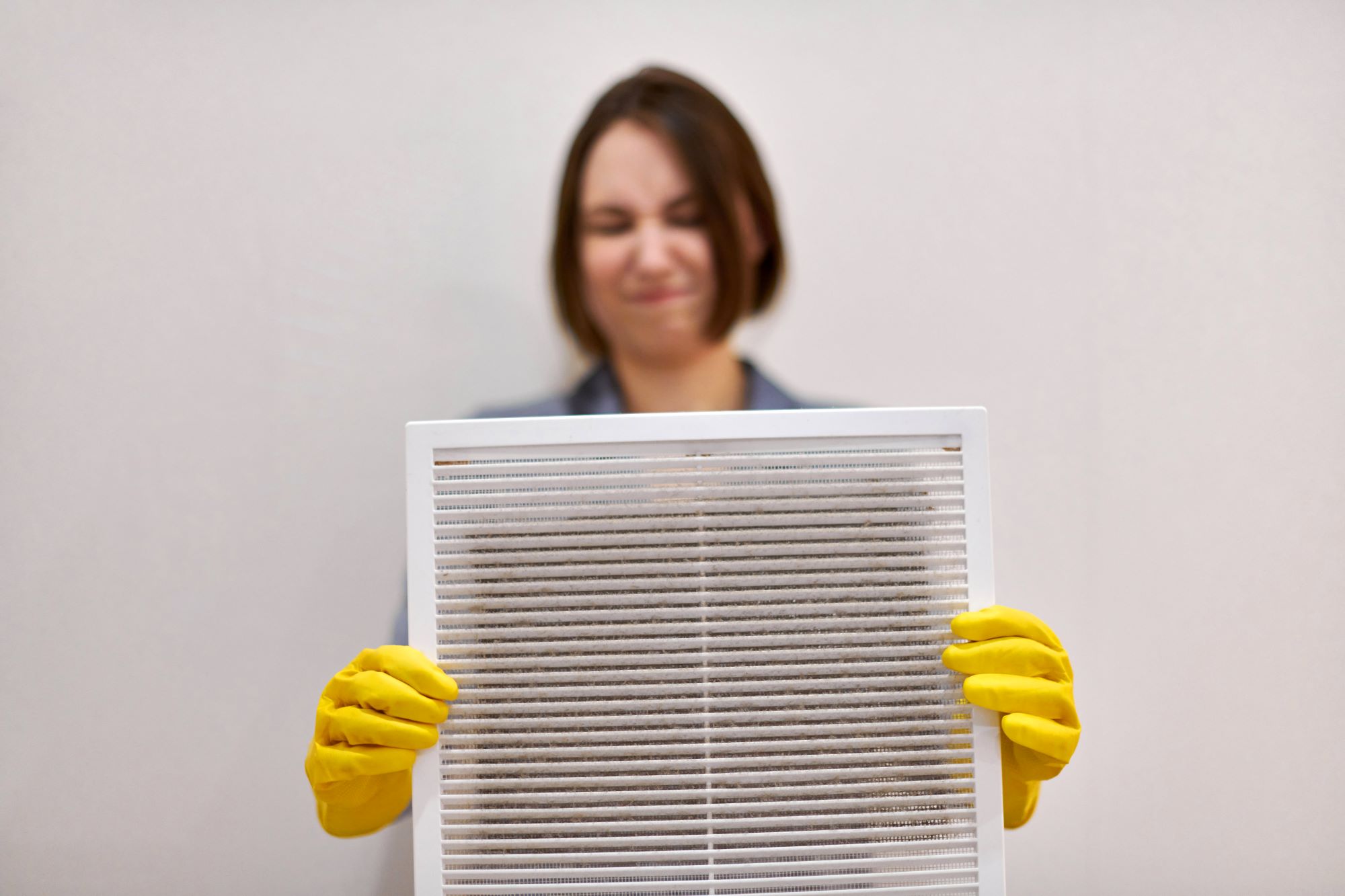Heating, ventilation, and air conditioning (HVAC) systems are crucial for making homes comfortable. A big part of maintaining that comfort is taking good care of these systems by responsibly changing the filters when necessary.
This article explains when to replace your filters and how to do it. It’s important to follow the manufacturer’s advice and consider factors like pet hair or dust in your home. Knowing when and how to change your filters keeps your home clean and helps save energy.
How To Determine When To Replace Your Filter
Swapping your HVAC filter depends on the manufacturer’s advice and the cleanliness of your current air. It’s ideal to follow the manufacturer’s guidelines to optimize the system’s performance. If the air quality worsens, it’s time to change the filter.
Keep your filters in check to ensure that your home’s air remains free of allergens. Learn more about both the filters and the manufacturer’s recommendations to help determine when to replace your filters.
Manufacturer’s Recommendations
Take the manufacturer’s advice into consideration when replacing your HVAC filters. They usually provide clear guidelines on when to do so. The specifics will depend on the type and placement of your air filter, as well as the environment it operates in. Following these guidelines is essential to prevent complications, including other reasons your AC won’t turn on.
This is mainly to avoid damaging your unit due to incorrect or excessive air filter usage. It’s worth remembering that replacing filters more frequently than advised won’t necessarily enhance your system’s efficiency.
However, it may increase the cost of replacement parts and labor. By considering factors like location, environment, cost, and maintenance schedule, you’ll be better equipped to make the right decision when it’s time to change your HVAC filters.
Reduced Air Quality
Neglecting to replace air filters harms air quality, making your home less comfortable and potentially affecting your health. Dirty filters cause your HVAC system to exert more effort, resulting in increased energy expenses.
Additionally, they allow dirt, dust, and other particles to clog your system, shortening its lifespan. Some of these particles can be allergens or harmful contaminants that trigger reactions in sensitive individuals.
Regularly checking and replacing your filters according to the manufacturer’s recommendations will keep your HVAC system running smoothly, maintain clean indoor air, and protect you from potential health hazards linked to poor air quality.
The Process Of Replacing HVAC Filters
Regular upkeep of your HVAC system involves crucial steps such as the following:
Identifying The Filter Placement Within Your HVAC System
Begin by identifying the location of the filters within your HVAC system. The complexity of this task varies depending on your HVAC system type. Filters are commonly placed near return grills or air handler units. However, they could also be concealed in wall cavities or behind access panels in closets or attics. If unsure, seek assistance from a professional.
Some of the latest HVAC models feature electronic controls that facilitate locating and replacing the air filter. If your system includes this feature, refer to your user manual for guidance. This ensures a quick and efficient filter replacement, eliminating the need to dismantle walls or ceilings. As a general rule, involve certified technicians before undertaking any repairs. This approach ensures accuracy, saves time, and possibly reduces costs.
Proper Removal Of The Old Filter
When removing a used and dirty air filter from your HVAC system, do so cautiously to prevent possible damage. Start by checking the filter’s condition and stability. In certain situations, you might need a tool like a screwdriver for smooth removal. Be gentle during this process and avoid dropping or twisting the filter, as it can result in irreversible damage.
It’s not advisable to reuse old filters as it can diminish airflow and undermine the efficiency of your HVAC system. Lastly, dispose of the old filter responsibly, as it may contain hazardous materials that should not be released into the environment. Adhering to these steps ensures a seamless replacement and optimal performance of your HVAC system.
Installing The New Filter Correctly
When installing new filters, begin by determining the correct placement for the new filter. Turn off the primary power for your HVAC system. Remove the old filter and clean any residual debris from the air handler. Next, install the new filter, aligning it as per the user manual. Finally, turn the HVAC system back on and ensure it operates as the manufacturer suggests.
Disposing Of The Old Filter Responsibly
Dispose of your old HVAC filter in the proper way to maintain a safe and clean indoor environment. When it’s time to replace it, remember to recycle it. However, exercise caution if the filter contains hazardous materials like asbestos, as these require special handling.
If you’re unsure about how to dispose of it, check with your local waste management or consult a professional. It’s also advisable to familiarize yourself with the local rules regarding the disposal of air filters, as they can vary based on filter size and composition. Adhering to the correct disposal methods helps keep our environment clean for everyone in the future.
Takeaway
In essence, swap out your HVAC filters regularly. This simple act can drastically better your home’s air quality and keep your system running smoothly, saving you money. Moreover, it won’t take more than a few minutes. But remember, filters don’t all last the same amount of time. Stick to the manufacturer’s advice on when to replace them. By doing this, your HVAC system will keep performing optimally.

